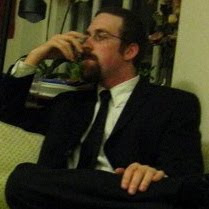The Siddur is often defined as a collection of liturgical prayers and declarations. The way the Siddur is presented in most Messianic Jewish services (most Jewish services in general) is as liturgy. There is a great deal of call and response, very little space for individuals setting their own pace, etc. The term liturgy, however, is most specifically defined as the Eucharist, and more generally as a rite for public prayer/worship. The Siddur most certainly contains Jewish "liturgy." Nevertheless, I am becoming increasingly convinced that Siddur davening is not meant to be "liturgical" in totality, though portions of it are.
For example...
The Bar'chu is meant to be call and response. The kedushah in the public recitation of the Amidah has a community <-> leader dynamic. The kaddishim are public, and have specific communal responses. The Torah service has similar dynamics. Not suprisingly, all of the prayers I mentioned require a quorum of ten Jews for them to be recited. These are most definitely liturgical.
BUT....
Jewish prayer and blessings are not entirely communal. This is an overreaction to hyper-individualism (which is a problem) and the result is robbing people from a whole individual aspect of Jewish spirituality, not to mention the sense of individual responsibility to mitzvot. It doesn't work to say Judaism is communal and then expect every individual to daven on their own.
The Siddur is much more diverse. The morning blessings were never intended to be recited communally. The blessing over washing hands happens (oddly enough) after one washes hands. The blessing over God's creation of the body is meant to be recited after going to the bathroom. The blessing of "who provides for all my needs" is meant to happen after putting on shoes. The blessing over "who straightens the bent" is meant to happen after when one gets up in bed (This whole list is mentioned in Masechet B'rachot).
As far as the other sections of shacharit that are led be the shliach tzibbur, while there's singing together, the experience is not meant to be "lock-step." The shliach tzibbur is simply meant to set the pace so that the k'hal can join together for the "liturgical" portions of shacharit.
Let's not forget that the siddur contains all kinds of blessings for all kinds of occasions meant to be memorized. In fact, the Kitzur Shulchan Aruch, which is the latest Jewish law code , only reluctantly allows for a person to hold something during the Amidah...namely, a Siddur! The actual "position" for the Amidah is hands folded over the solar plexis. The first two b'rachot and Modim were meant to be recited exactly as is, while the others were meant to be improvised upon.
The point is that the service was established long before people had Siddurim. This is also the case with Christianity, but Christian liturgy is often very short and/or repetitive...The upshot is this:
Shacharit is simply too long to be treated like liturgy. This whole liturgical paradigm that developed is what led to much of the rebellion against the traditional order/content. Most people thought, and still do think, the answer was/is to shorten it. This is still not enough. I will offer the following for consideration:
If Shacharit is treated like it is all liturgy, it will be very difficult for it to be meaningful. If you truncate it you don't get the full story, and if you make people do the entire thing virtually out loud with no opportunity to set their own pace within a larger pace, it will become performance. We need space to be on our own, yet together, often. We need opportunities for shlichim to choose which psalms to sing out loud in the moment. We need our communities to be educated and comfortable enough with the service to make all of this possible.
I pray for renewing minds and shifting paradigms. I pray that all of us will find ourselves encountering God in our services more deeply in the days, weeks, months, and years ahead.

This is a huge thing for me, thanks for posting!
ReplyDeleteI find that if all Shacharit is treated like liturgy, then P'sukei di-Zimrah (and the preliminaries before Psalm 30) exhaust all of the congregation's concentration for prayer instead of serving as a meaningful preparation for prayer.
Orgadol,
ReplyDeleteThank you for your comments. I most agree that there are things that are meant to get us excited that fail to do so when they aren't given their proper voice.